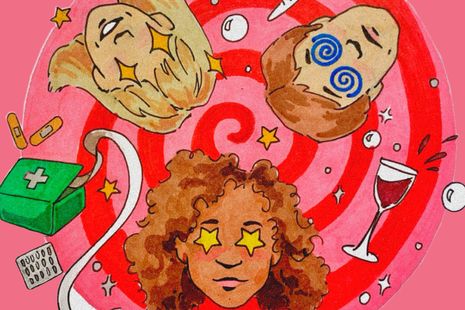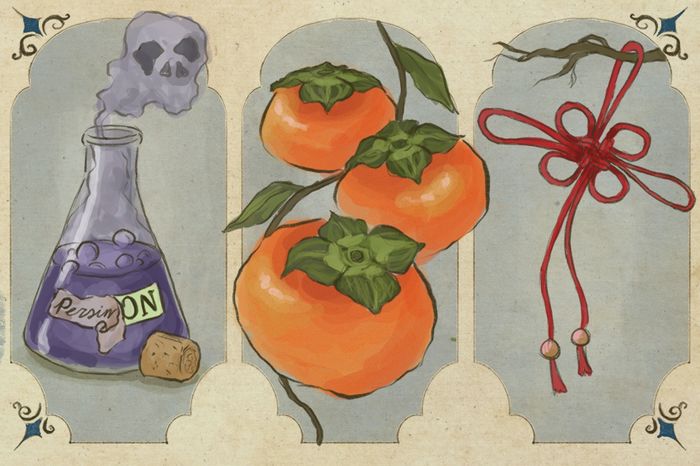What happens to your body during May Week?
Maya Kunchur takes a look at how exam term and May Week affect your body – and how to minimise the damage

After a year at Cambridge, even the idea of a week of freedom easily hooks us in. Perhaps you’re looking forward to getting outside and spending time in the sunshine, punting with friends, and making that day trip to Ely you’ve been talking about for a year.
Or maybe you’re getting ready to don your waistcoat and ball gown and become nocturnal for seven consecutive nights as you drink excessively, switch to a diet of grazing on luxury buffets – yes, I’ve seen the oyster bars – and dance away that exam stress. Chances are the average Cambridge student entertains a bit of both these parallel realities. However, it’s the second one which is most interesting here. Let’s say you do go nocturnal and test your liver. When you come out the other side, will anything have changed except your bank balance?
For one, your circadian rhythm might be a little confused. Circadian rhythm is an intrinsic cycle which helps the body to align with daytime and nighttime. Hormones, metabolism and other molecules are synthesised, circulate and act at defined periods during this cycle. For example, even in the absence of mealtimes, insulin peaks at 3 defined short intervals during the day. Growth hormone always peaks just after waking up. And melatonin, which helps you fall asleep, is released by the pineal gland of the brain in response to darkness. Studies conducted on night shift workers show disruption of the circadian rhythm can decrease alertness, memory and decision-making. In the long term, it can worsen pre-existing conditions such as epilepsy and diabetes.
“Over half of Cambridge students drink several times a week”
Of course, in our modern world, our intrinsic body clocks have to deal with electric light on a daily basis. Short-term disruption can be recovered from reasonably quickly, especially as a young person. Nonetheless, May Week’s disruptions offer an interesting window into what goes on inside your body or the unconscious parts of your brain which tick away alongside your watch – whether you’re checking it or not.
A Varsity survey conducted in Lent term found that over half of Cambridge students drink several times a week. Let’s be generous and assume the same applies for May Week. Since alcohol is broken down by the liver, there’s several major drugs it can interact with: if you suffer from hay fever, that loratadine tablet could make you extra drowsy in May Week. And taking painkillers to cure hangovers between drinking bouts is a risky play. Alcohol increases your body’s production of an enzyme which converts paracetamol into a toxic product. Normally just a small amount of paracetamol is converted this way, but if there is alcohol in your blood, the concentration of this toxic metabolite in your body will be higher than was accounted for when the safe doses on the back of the packet were calculated. The complexity of the body means pathways of breakdown, detoxification, absorption and synthesis can all interact with each other so drugs ranging from painkillers to antibiotics can all interact with alcohol. Many do have serious interactions so always check the correct guidance for medication.
“You may not be aware of the link between the alcohol and that unshakeable cough”
Have you heard of ultra-processed food, kefir or probiotics? There might be one thing tying them together in your minds: your gut microbiome. A huge variety of bacterial species reside in your intestine and help to break down much of the food you consume which your body lacks the intrinsic capacity to digest. For example, in lactose-intolerant people, bacteria are able to digest lactose – only their chosen method of fermentation can have unfortunate side effects. A very active area of research is the effect of gut bacteria on mood. Since alcohol can change the composition of the gut microbiome, it’s possible emotional changes in the aftermath of May Week are affected by alterations to the gut-brain axis.
In addition, you may not be aware of the link between the alcohol and that unshakeable cough you always seem to get right at the start of the summer holidays. Drinking 5-6 drinks can suppress the immune system for up to 24 hours and leave you vulnerable to infections, particularly of the respiratory tract. Ethanol is reported to disrupt many parts of the communication pathways between immune cells and lower the count of white blood cells: the infantry of our immune systems.
Some reports, however, say that red wine actually increases white blood cell populations. Perhaps every glass of wine at formal is a year added to our lives? Unlikely; although there are headlines of red wine boosting the immune system splashed around, this remains controversial and the mechanism elusive. General scientific consensus now seems to agree that no alcohol is actively good for the body, but red wine is comparatively better than liquors because of its antioxidant properties which arise from its relatively high polyphenol concentrations. Despite May Week not being in May, it is actually only a week, which is generally too short a biological timespan to be in the realm of chronicity. However, combined with potentially a month more of stress or sleep debt from the lead up to exams – and hey presto, extra immunosuppression: that cough is sounding a lot less like a coincidence.
So what can you do? Agreed, May Week events can be really fun and are an excellent way to let off steam after exams. Most of the adverse effects described would be extrapolated from a May-week-esque lifestyle (see: Jay Gatsby) rather than just 7 days. But that ticket price included food as well as drinks, so make sure you get your money’s worth: your organs will thank you later. After you’ve crashed out and woken up at 3 o’clock in the afternoon, maybe go for a walk to remind your body the sun is still out there. And finally, my recommendation: enjoy the events, but also do the punting and the daytrips. We only get a week, and when it’s over we’ll have too bad a cold to leave our rooms, after all.
 News / Colleges charge different rents for the same Castle Street accommodation2 March 2026
News / Colleges charge different rents for the same Castle Street accommodation2 March 2026 News / News in Brief: waterworks, wine woes, and workplace wins 1 March 2026
News / News in Brief: waterworks, wine woes, and workplace wins 1 March 2026 News / Climate activists protest for ‘ethical careers policy’1 March 2026
News / Climate activists protest for ‘ethical careers policy’1 March 2026 News / Private school teacher who lied about Cambridge degree barred from teaching27 February 2026
News / Private school teacher who lied about Cambridge degree barred from teaching27 February 2026 News / Angela Merkel among Cambridge honorary degree nominees27 February 2026
News / Angela Merkel among Cambridge honorary degree nominees27 February 2026









